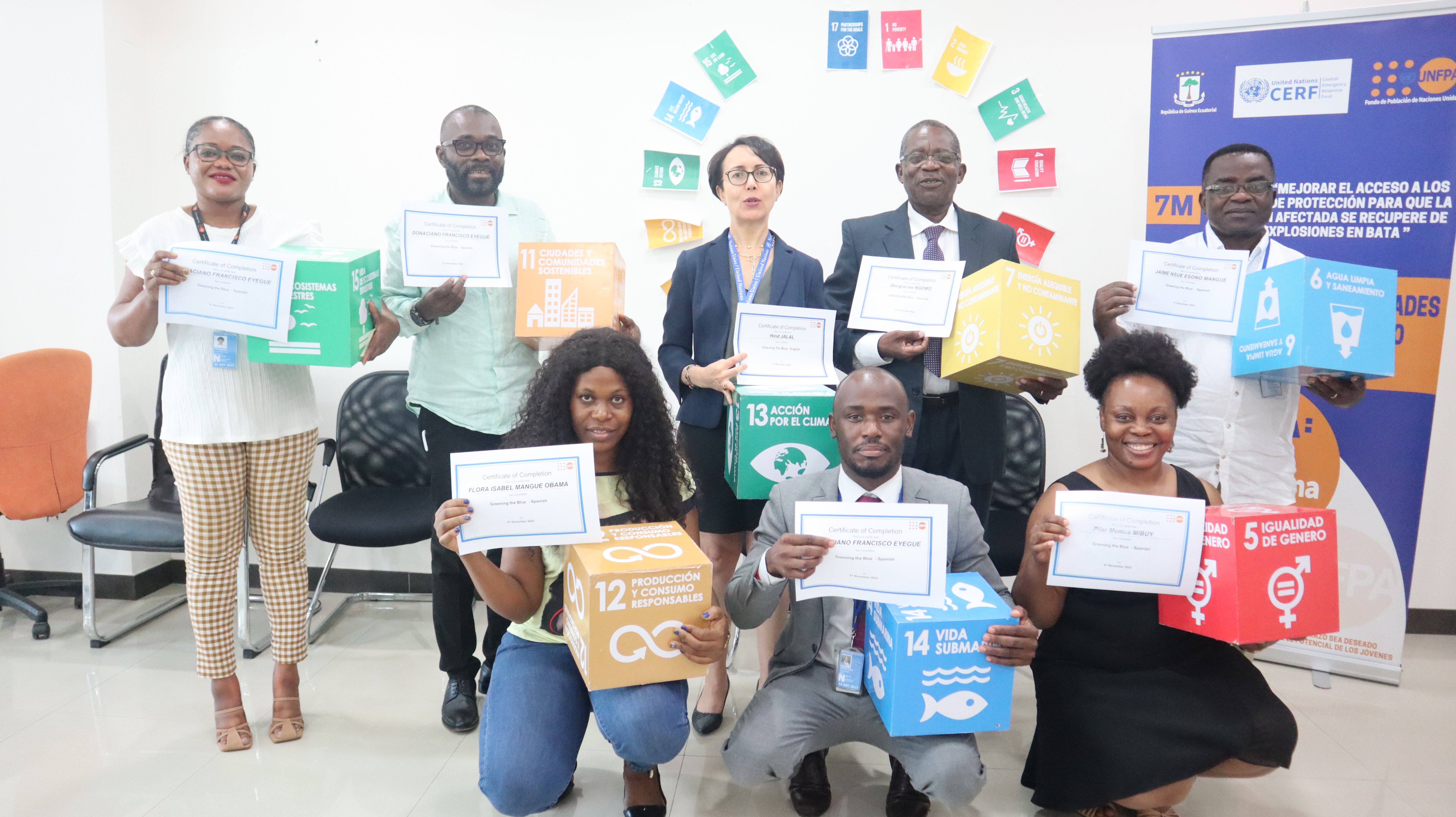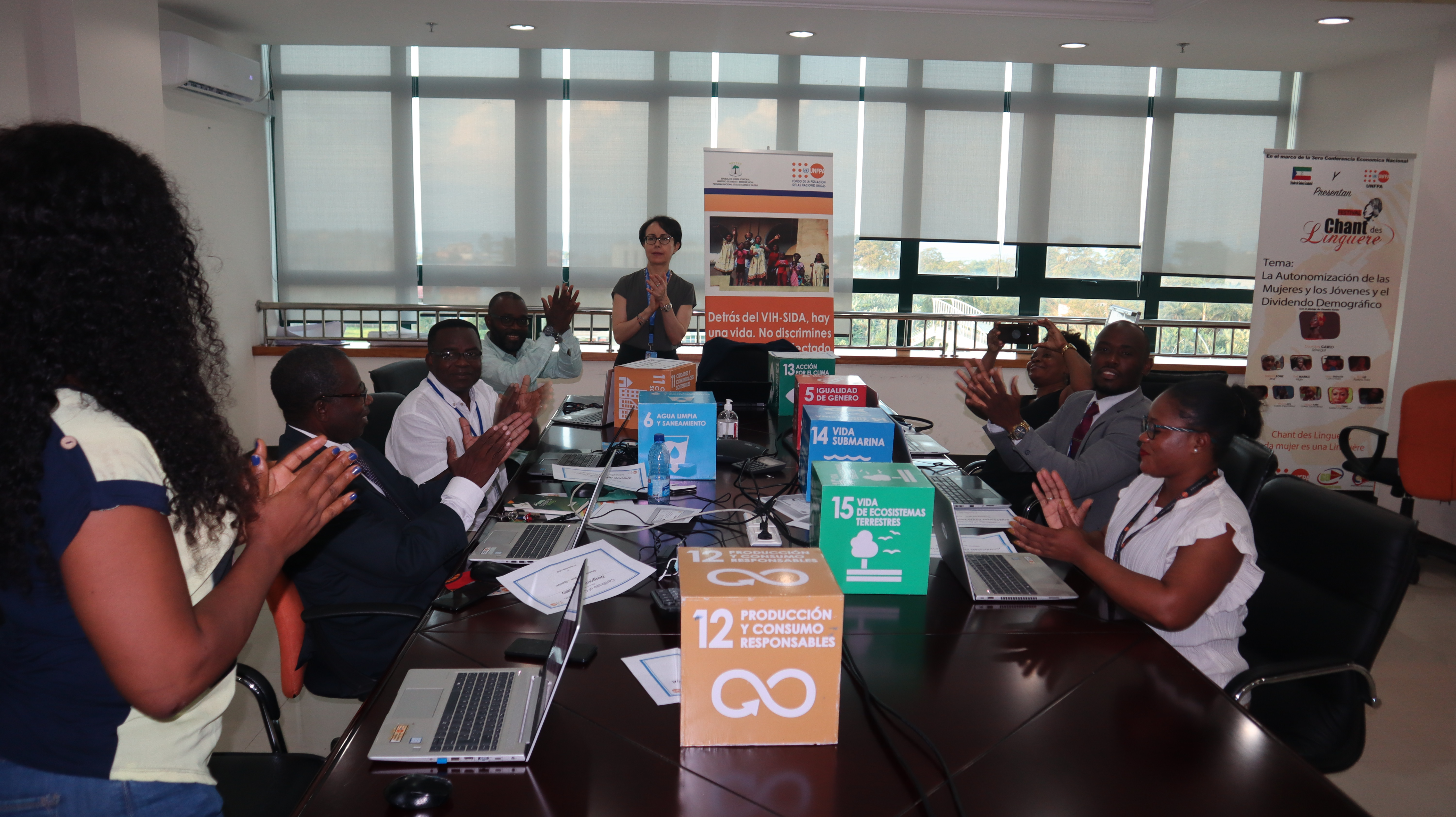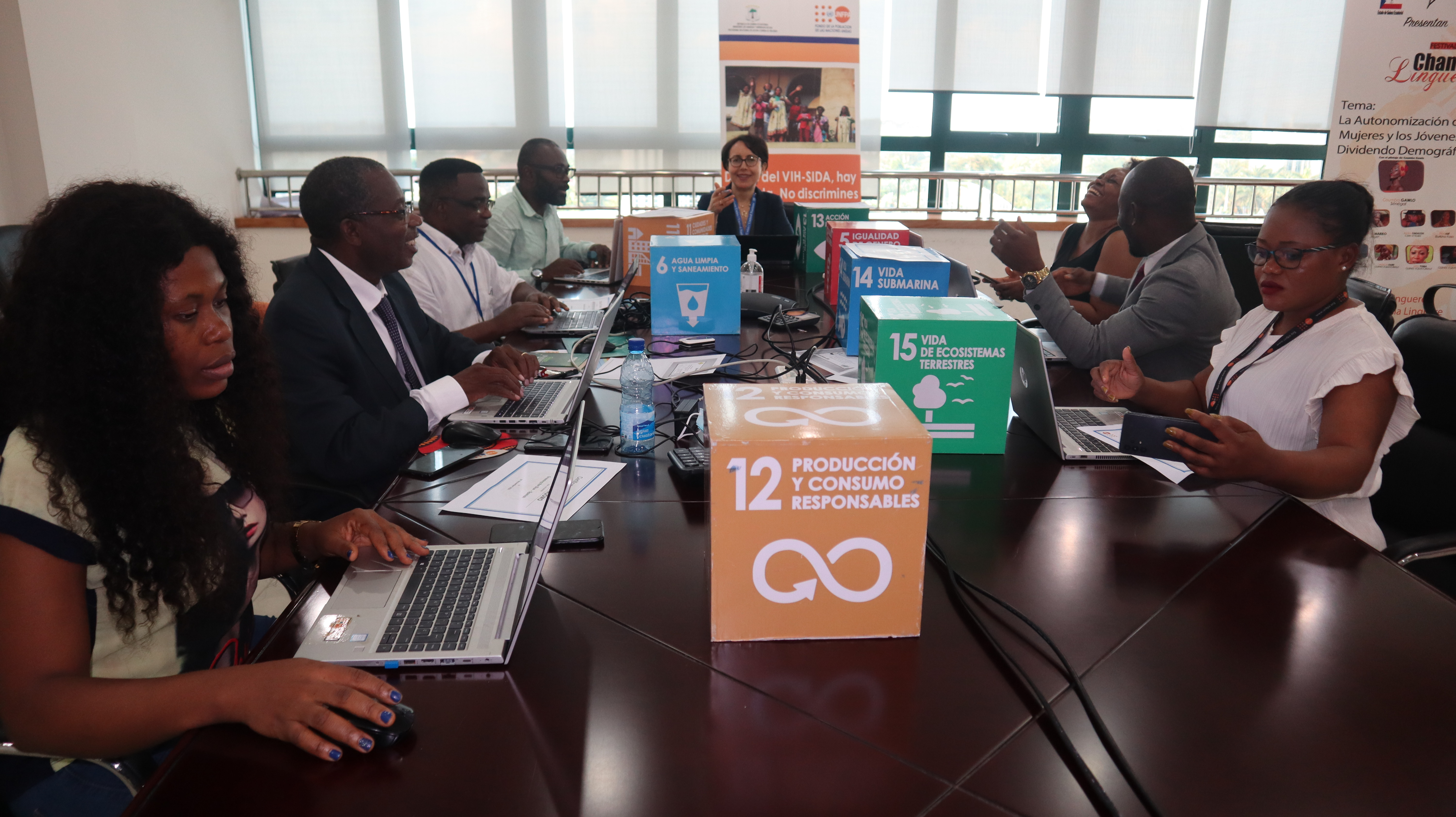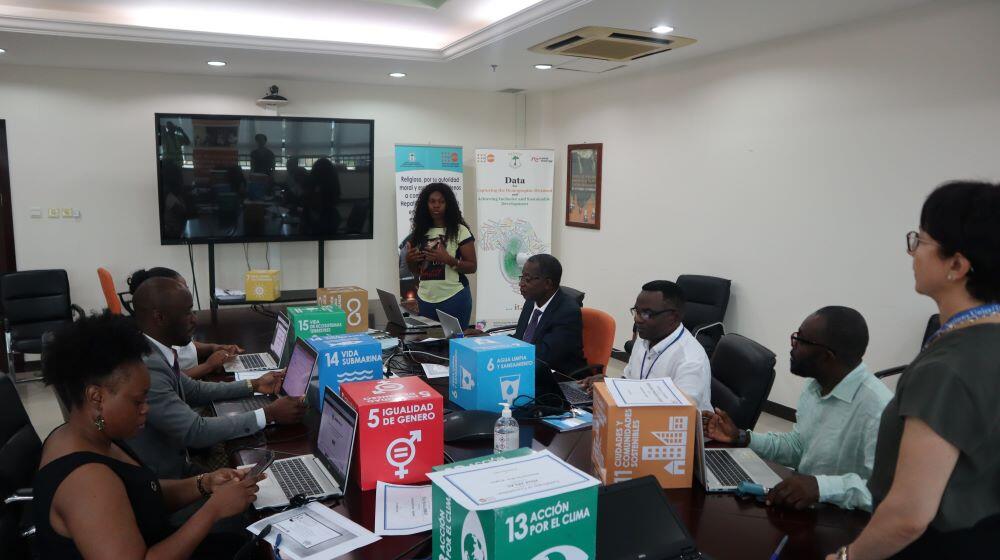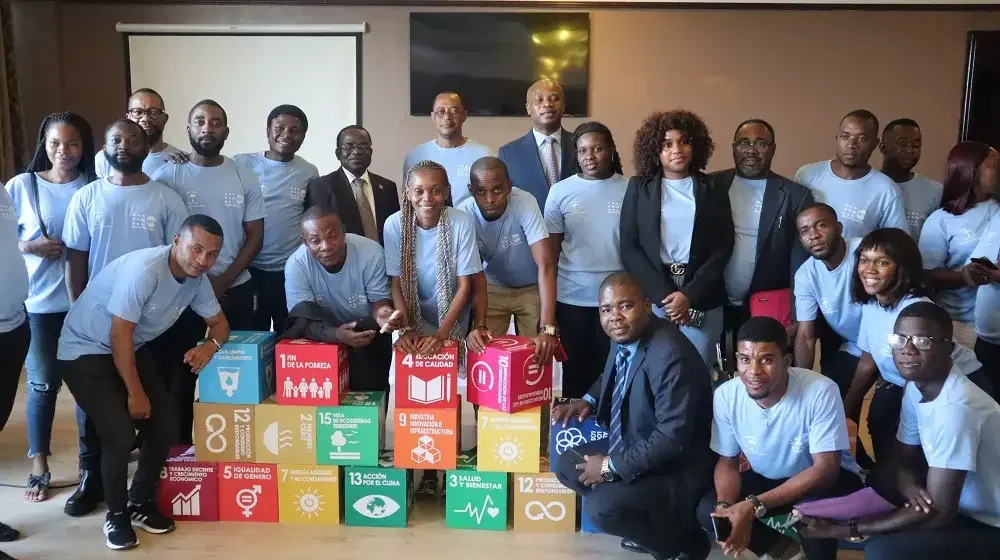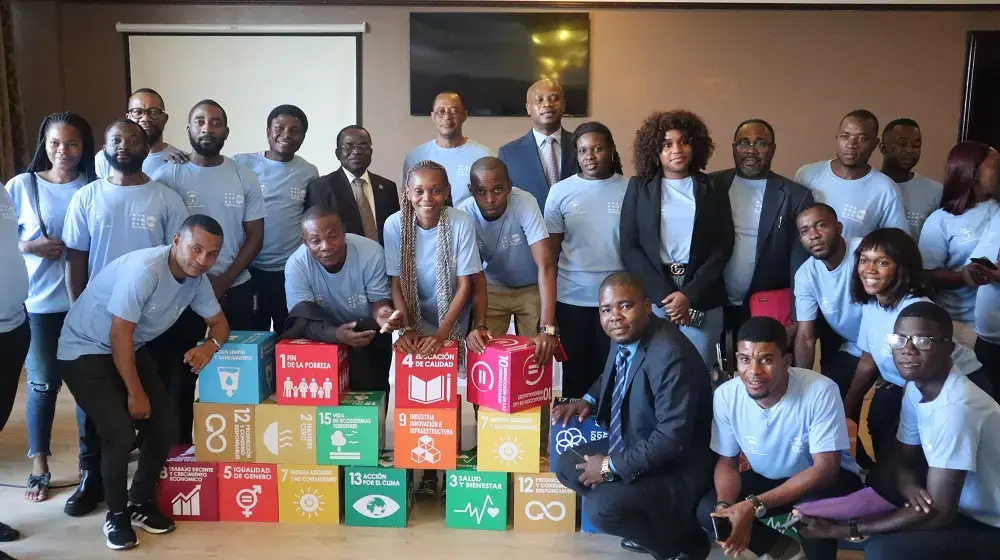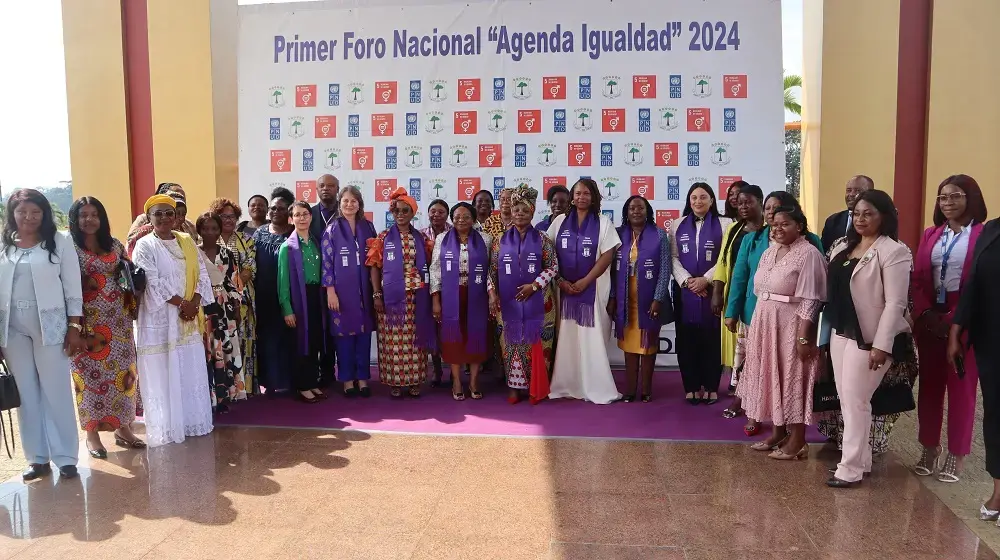Malabo, November 1st, 2022. The world is in a climate emergency – “a code red for humanity” according to the UN Secretary-General. The concentration of greenhouse gas (GHG) emissions in the atmosphere is wreaking havoc across the world and threatening lives, economies, health and food. The world is far from securing a global temperature rise to below 2°C as promised in the Paris Agreement. With a baseline in 1990, some countries are emitting more, some the same and others are emitting less. As we are caught up in the triple planetary crisis: the climate change, pollution and biodiversity loss, each of these issues has its own causes and effects and each issue needs to be resolved if we are to have a viable future on this planet.
Against this backdrop, UNFPA Equatorial Guinea organized a learning afternoon on the UN initiative GREENING THE BLUE. Greening the Blue is a UNEP initiative to engage and support the UN System in the transition towards greater environmental sustainability in the management of its facilities and operations.
All staff took, jointly, the mandatory course “Greening the Blue” and reflected on the different modules of the course while calculating an estimation of each one’s footprint.
The session concluded with bold personal commitment raging from reducing the use of plastic, reduce the speed when driving, eliminate unnecessary printing, recycle waste, review our way to prepare for meetings and trainings by minimizing folders content…
Hind Jalal, the UNFPA Representative, nominated the Office Focal point Ms Flora Isabel M. Obama who will ensure the coordination and reporting on Greening the blue issues. Under the leadership of the Representative, the Office will explore ways to mainstream the energy efficiency in program and operations. This will be implement through the following:
- Create a common shared vision for internal sustainability of programs and operations
- Align the UNFPA Equatorial Guinea CO’s internal operations and programs with the environmental elements of the Sustainable Development Agenda
- Create space for innovation and promote individual accountability
- Propose indicators to track and prove progress wthin its Annual Work Plans.
